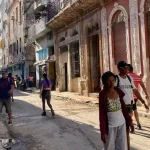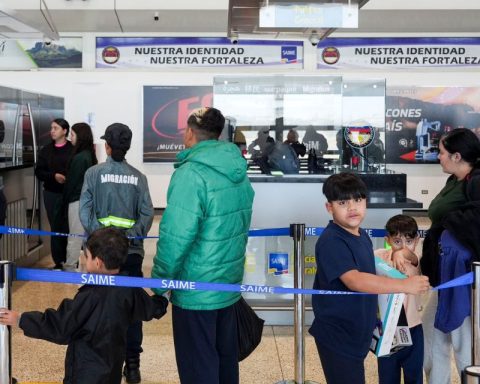China declared this Friday that it will continue with its “zero covid” strategy despite the growing frustration of the inhabitants of Shanghai, confined since the beginning of April and who protest against the government’s health policy with saucepans from the windows.
The Asian giant is currently facing its worst epidemic outbreak since the spring of 2020. In the last 24 hours, the Ministry of Health registered more than 15,500 new cases of covid-19.
In Shanghai, a metropolis of 25 million inhabitants located in the east of the country, the authorities registered 52 new fatalities on Friday, who were not vaccinated.
The “zero covid” strategy stipulates the confinement of neighborhoods or cities after the appearance of covid cases, a quarantine for positive people, even if they are asymptomatic, and massive tests.
“It is an effective weapon to prevent and control the epidemic” in China, where 1.4 billion people live, Li Bin, vice minister of health, told reporters on Friday.
“Our country is very populous, with regional imbalances in terms of development and a lack of medical resources. If we relax [las medidas] and we let the virus spread, many people will get infected,” he added.
The “zero covid” strategy made it possible to limit the number of deaths from the coronavirus, which is officially less than 5,000.
But the long lockdowns weigh on the economy and on the mood of the population.
Logistical challenge and cacerolazos
In Shanghai, the most affected city, residents complain of not having enough fresh vegetables and meat.
On Thursday night, videos posted on social media that were quickly censored showed residents protesting with saucepans from windows and demanding “provisions.”
A Shanghai resident told AFP, speaking on condition of anonymity for fear of possible reprisals, that she had seen such images online. After hearing the noise outside, she joined in the pot-banging. “I saw a lot of videos like this, submitted by people who live in different neighborhoods,” she said.
The censorship of these images feeds the discontent of the population.
But the confinement is also a huge logistical challenge, that of supplying 25 million people despite the lack of delivery personnel.
Another problem mentioned by Liang Wannian, head of the Health Ministry’s team of experts against covid, is the insufficient vaccination rate of the elderly in China.
This policy will also penalize the tourism sector during the May 1 vacation, which begins this Saturday and lasts five days. The Ministry of Transport forecasts a 62% drop in trips compared to 2021.
For the president of the European Union chamber of commerce in China, Joerg Wuttke, the rulers are only guided by the “zero covid” policy and “do not worry about the economy in the short term.”
According to Wuttke, this health policy will continue until the 20th Congress of the Chinese Communist Party at the end of 2022, when President Xi Jinping is expected to get a third term as head of the regime.
“You cannot change the discourse (towards covid) so close to the objective,” he says.











